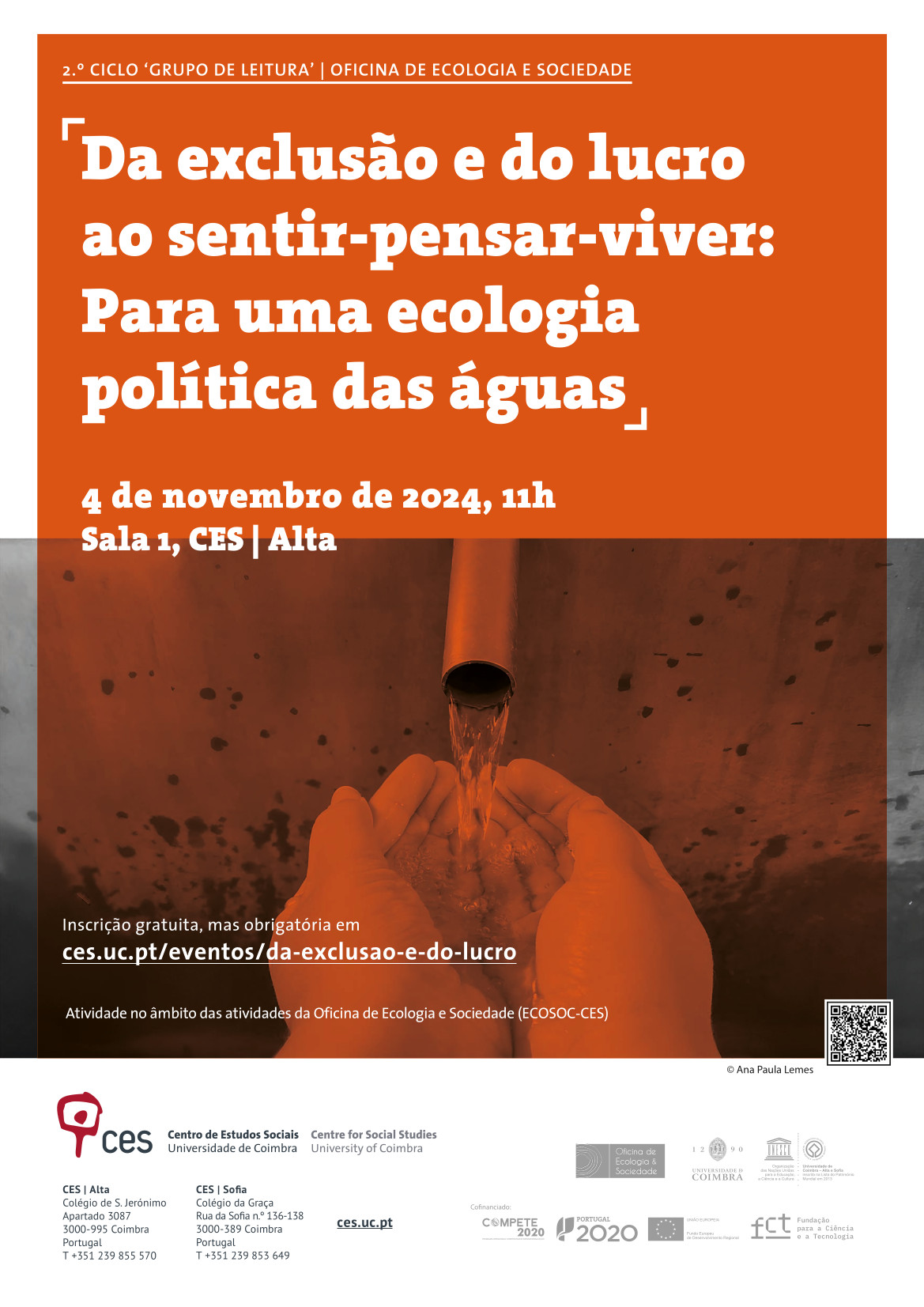Political Ecology Reading Group
From Exclusion and Profit to Feel-Think-Live: Toward a Political Ecology of Water
November 4, 2024, 11h00
Room 1, CES | Alta
Water is part of our lives in multiple forms and manifestations, and it is the subject of different understandings and controversies. On the one hand, the instrumentalization, appropriation, and definition of a profitable function for water have predominated, converging with the conceptions associated with the capitalist and colonial modernity of the world. On the other hand, for diverse cultures around the globe, water can appear as a common good or as an entity that participates in life in relationships of care and reciprocity.
This reading group session will discuss various uses and meanings associated with water and insurgencies in the face of processes that distort its meaning as a common good. In “Intimations of Modern Water?” the various understandings of water in the modern world and the social and political dimensions of the relationship between water and society are presented. In the article “Precarious Lives in Turbid Waters: collaborative anthropology in the ruins of the Anthropocene”, research experiences in the waters of rivers, seas, and mangroves are reported. Finally, in “How rivers are reborn,” we are invited to participate in conversations between farmers, activists, and a researcher about the recovery of rivers and the enchantment of everyday life.
Readings
We suggest that the material be read-viewed in the sequence 1 - 2 - 3
(1) Linton, Jamie. “3. Intimations of Modern Water”, What is Water? The History of a Modern Abstraction. Nature|History|Society Series, Ed. University of British Columbia, p. 47-72.
(2) Andrés, R.; Gonçalves, N.; Paula, I. e Brito, C. “Como renascem os rios?”, in Moulin et al. seres-rios. São Francisco, Jequitinhonha, Doce, Belo Horizonte: BDMG Cultural, p. 287- 307.
(3) Lopes, D. K. et al. 2021. Vidas Precárias em Águas Turvas: antropologia colaborativa nas ruínas do Antropoceno. Ilha: Revista de Antropologia, 23(1), 97-126.
Registration is free, but mandatory
Coordenation: Ana Paula Lemes de Souza, Ananda Martins Carvalho, Eliane Sebeika Rapchan.


